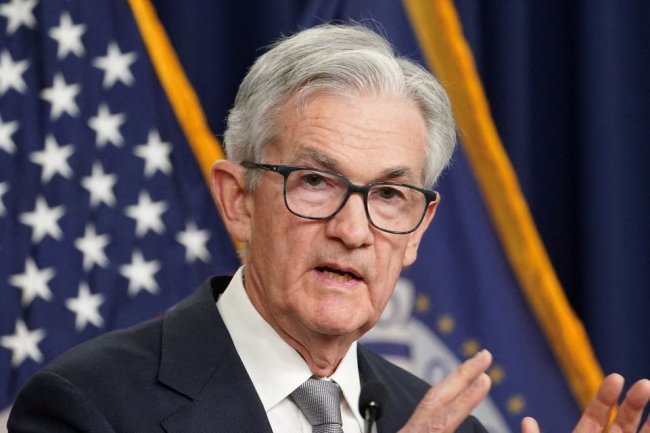Hong Kong Loses Court Bid to Ban Protest Song Appearing on Google
Judge refuses to issue order blocking online dissemination of protest anthem, saying criminal acts can be punished by the city’s current laws The case has added to the chill facing tech companies in Hong Kong. Photo: Louise Delmotte/Associated Press By Newley Purnell Updated July 28, 2023 6:22 am ET HONG KONG—A judge rejected a government bid to ban the dissemination online of a popular pro-democracy song, dealing a blow to Hong Kong’s efforts to extend a national-security crackdown to online platforms such as Google. The ruling, delivered by one of the city’s national-security case judges handpicked by the government’s leader, is the latest in a series of setbacks dealt by the city’s courts to local authorities that are seeking to eliminate dissent. If the judge had agreed to giv


The case has added to the chill facing tech companies in Hong Kong.
Photo: Louise Delmotte/Associated Press
HONG KONG—A judge rejected a government bid to ban the dissemination online of a popular pro-democracy song, dealing a blow to Hong Kong’s efforts to extend a national-security crackdown to online platforms such as Google.
The ruling, delivered by one of the city’s national-security case judges handpicked by the government’s leader, is the latest in a series of setbacks dealt by the city’s courts to local authorities that are seeking to eliminate dissent.
If the judge had agreed to give the order, which sought to ban distribution of the song “Glory to Hong Kong” worldwide, it would have set the city on a collision course with Google and other platforms. Analysts said such a ban could have led the companies and their services to exit the financial center, which has for decades enjoyed a mostly open internet, unlike in China.
The case has added to the chill facing tech companies in Hong Kong, shifting the target for online dissent from individuals to platforms themselves. American tech giants in recent months have been shutting out users bit by bit in Hong Kong amid concern over the national security law.
Hong Kong’s Department of Justice last month applied to the city’s High Court for an injunction banning the broadcasting or distribution—including on the internet and any media accessible online—of the song, which has been adopted as an anthem by pro-democracy demonstrators since mass protests broke out in 2019.
The legal action didn’t name any specific companies, but Alphabet Inc.’s Google has been embroiled in a controversy over the song as authorities move to tamp down dissent using a national-security law imposed by China in the city three years ago in the wake of the popular unrest.
The government’s application for the court order included links to 32 videos on Google’s YouTube related to the song.
A Google spokeswoman declined to comment. The city’s Department of Justice didn’t immediately respond to a request for comment.
“Glory to Hong Kong” has been effectively outlawed by authorities since the national-security law was brought in and police have arrested people for playing it in public or posting it online.
“After careful consideration, the Court was not satisfied that the Injunction would be of real utility bearing in mind that the acts were criminal acts punishable under a robust criminal regime,” Judge Anthony Chan said in a summary of the decision.
The government has the right to appeal the decision in higher courts.

Hong Kong authorities have been cracking down on dissent in the name of national security.
Photo: Louise Delmotte/Associated Press
Hong Kong’s highest court has twice ruled against the government in high-profile cases connected to the crackdown on dissent in the past eight months. In one case it denied government efforts to block newspaper baron Jimmy Lai hiring a foreign lawyer to defend him against national-security charges. The government later asked China’s government to change the law, effectively overruling the decision.
In the other case, the Court of Final Appeal overturned a journalist’s conviction for making a false statement when accessing vehicle records for an investigative report into the response of the city’s police to a mob attack on protesters in 2019.
The ability of Hong Kong’s judiciary to make rulings free of political pressure is closely watched by foreign businesses and diplomats as a barometer of remaining freedoms in the city, where political opposition has been purged and pro-Beijing loyalists now fill the city’s legislature.
The national-security law rolled back some protections for people accused of such crimes, enabling the government to handpick judges for national-security cases, restricting a person’s right to jury trial and making it harder to get bail.
Hong Kong officials and pro-Beijing figures have heavily criticized Google for featuring the protest song prominently in search results for Hong Kong’s national anthem.
City officials say the pro-democracy song’s lyrics contain a slogan that amounts to advocating secession. They have expressed anger after a series of incidents in which organizers at some global sports events wrongly played the song as the national anthem of Hong Kong instead of China’s “March of the Volunteers.”
The prominence of the protest song in Google has led to confusion at several international sporting events when it was played, triggering an investigation by the Hong Kong police’s organized-crime bureau.
SHARE YOUR THOUGHTS
Do you think Google will find it more difficult to operate in Hong Kong in the future? Join the conversation below.
A senior Hong Kong official last year said the government was discussing the search results with Google and its video platform, YouTube.
Google has said its search results are determined by algorithms, not by human curation, and that results some might find objectionable can occur when search queries match text on webpages.
Hong Kong officials have said they have worked to optimize government website pages for more accurate results, and a government page on “March of the Volunteers” now features prominently in Google searches for Hong Kong’s national anthem.
Unlike in mainland China, where the internet is tightly controlled, web access has long been largely open in Hong Kong. Foreign companies often cite the free flow of information as a reason they are based in the financial hub.
Still, Hong Kong police in recent years have arrested several citizens over content they posted on social media.
U.S. tech companies generally follow local laws in the countries where they operate, whether in Singapore, Saudi Arabia or the U.S., and sometimes restrict material from being accessed in particular countries.
In 2020 Google, Meta and Twitter said they would stop processing Hong Kong’s requests for user data following Beijing’s imposition of the national-security law, which curtailed long-held rights to freedom of expression in the former British colony.
Write to Newley Purnell at [email protected]
What's Your Reaction?

















